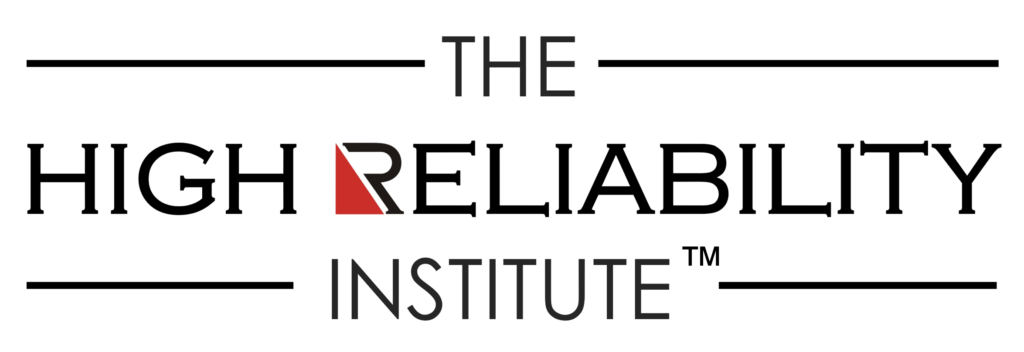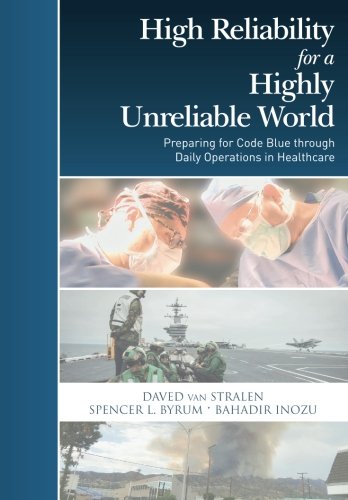Educating Your Staff on the Process and Techniques to Lead Transformation in your Organization
The High Reliability Institute™
HRS established The High Reliability Institute™ to promulgate the mindset, principles, and practices that define a High Reliability Organization.
The intent and purpose of The High Reliability Institute™ is to create a discipline and professional practice for leaders and change agents to become certified High Reliability Professionals. We mentor, coach, motivate and teach professionals who are looking for a better way to improve themselves and the organizations they serve. This is a holistic training solution, that can be either virtual or in-person,
Certified High Reliability Practitioner
Many organizations are complex, dynamic, multilayered and unpredictable. They require constant situational awareness to maintain safety, efficiency, compliance, relevance and fiscal responsibility. Everyone in the organization need to have the vision to minimize failure, errors and to respond to changes and unexpected events.
In this course, students encounter and explore principles and practices required to develop and maintain a highly reliable organization. Students will learn to engage in activities that reduce the risk of failure and how to respond to inevitable failure, both minor and catastrophic.
Learning Objectives
- Identify those activities and functions that contribute to the success and failure of work environments.
- Explain the principles of high reliability that contribute to the success of the enterprise.
- Analyze the present state of a work environment and functions to determine the level of performance and response to threats and opportunities.
- Develop a plan for identifying and mitigating risks to organizational reliability at their level of operations.
- Describe how to employ their resources such as talent, time, and tools to maintain a high level of performance and recover from the stress of modern work environments.
- Articulate functional areas of expertise necessary to excel in operations.
Benefits High Reliability Practitioner Training
- Grow highly reliable behaviors throughout the organization.
- Develop and enhance professional, personal, and psychological safety.
- Identify red flags.
- Respond to near-misses as opportunities to learn and mitigate risk of failure.
- Establish systems of communication.
- Agreement and commitment to High Reliability and Adaptive Design management to build collaboration, procedural standards, leading and lagging measures re-enforced with accountability.
- Create a mindset of continual learning, confidence, and competence.
- Principles and practices are adopted and varying rates across the organization; leaders and mangers will learn to identify areas needing support on the journey to reliability and adaptability.
- Establish a foundation for achieving operational consistency to promote quality, safety and enhanced customer experience through operational standards, flexible leadership, management dependability principles to transform the organization.
Who is this program for?
- Anyone interested in developing the habits of high reliability.
- Individuals that work in hazardous environments where failure can be injurious and or fatal.
- Organizations that wish to minimize failure and errors, especially those where even small failures can have catastrophic effects on individuals and/or the organization.
- Organizations that operate in volatile, uncertain, complex, ambiguous and threatening environments.
Course Textbook
HRS CEO Spence Byrum and co-authors, Daved van Stralen, MD, FAAP and Bahadir Inozu, PhD, are experts in the art and science of High Reliability Organizing (HRO).
They have, in their diverse and successful careers, applied the fundamentals of the HRO system to aviation, healthcare, public safety, manufacturing, and a multitude of other industries. Among these industries, HRO’s applications in healthcare have been garnering the most attention recently.
In addition to HRO’s many benefits, this new guide also explores the five HRO principles, as well as:
- HRO in healthcare environments
- The problems HRO solves
- Boyd’s OODA loop
- VUCA-T
- Decision making
- Threat responses
- Leadership models
- Organizational culture
- Crossing the liminal threshold


